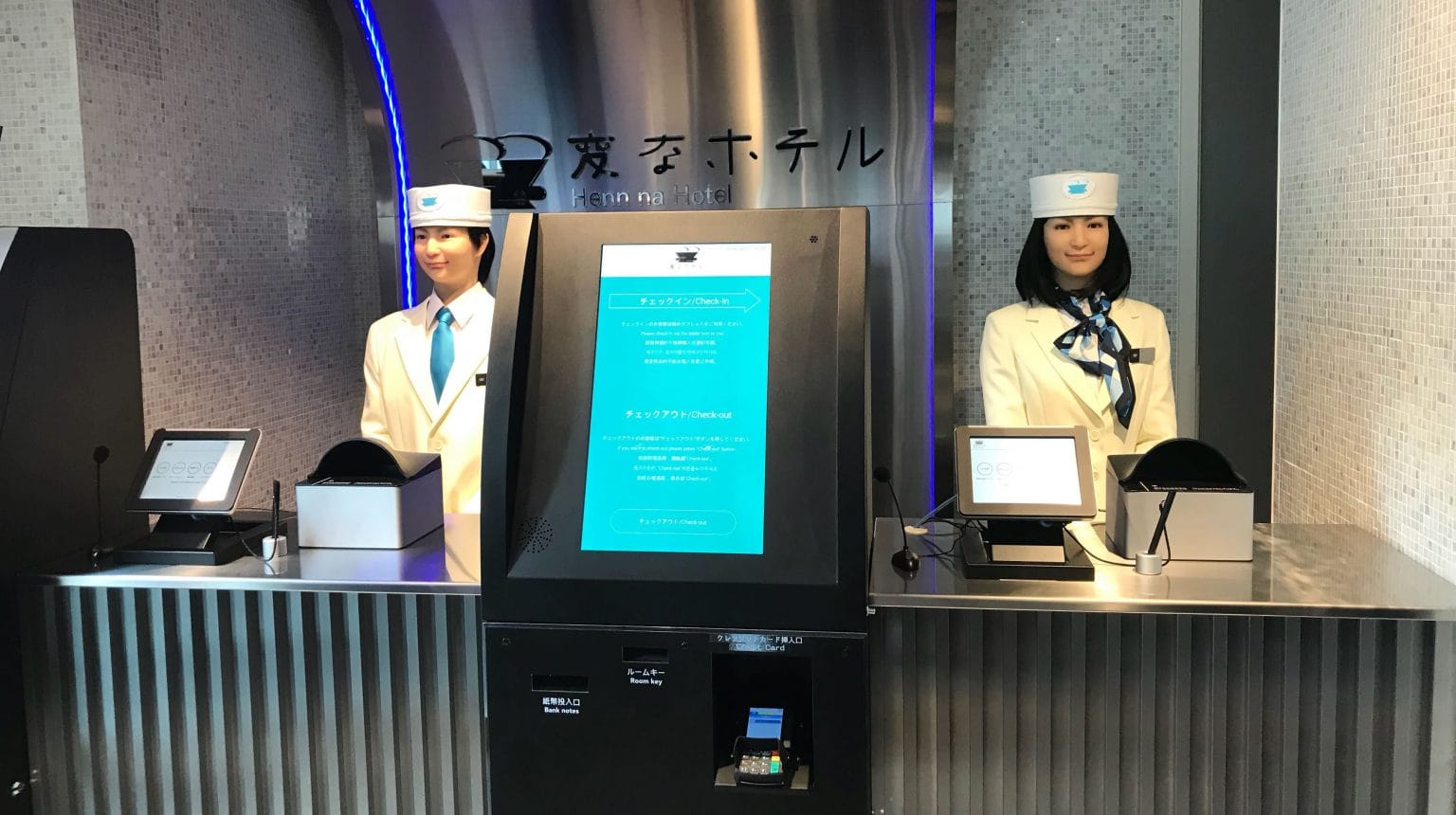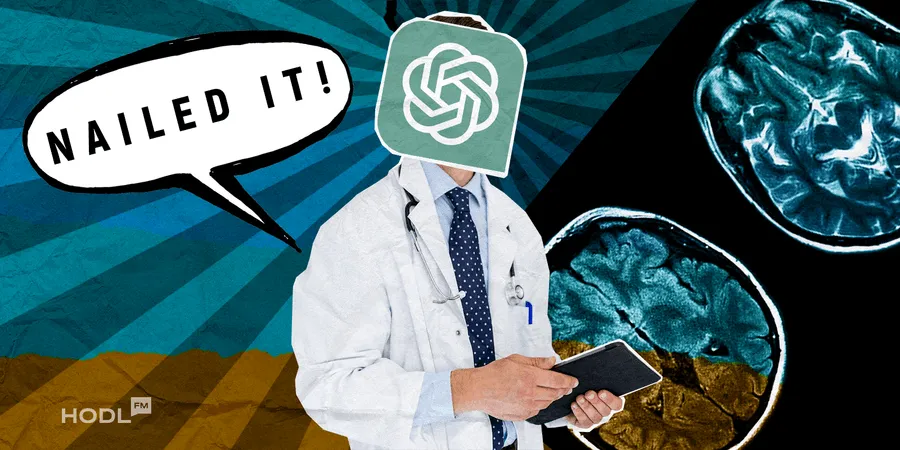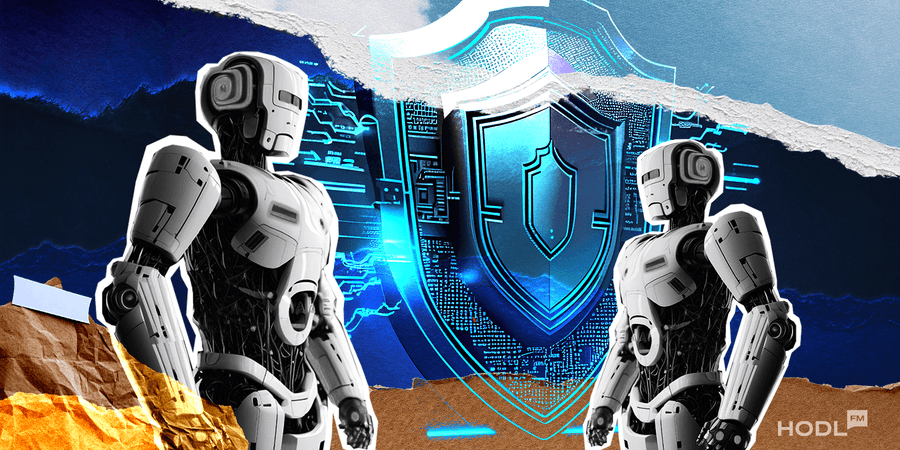A TikTok video went viral on Monday, showing a woman nervously laughing as she backed away from a humanoid robot at Japan’s Henn-na Hotel. “Don’t look at me,” she said, as the robot stared at her, probably judging her for being nervous. The moment is just another reminder that robots are slowly replacing humans in the workplace, and honestly, it's starting to feel a little too real.

This awkward hotel check-in has already racked up hundreds of thousands of views, tapping into a primal fear: robots that look, act, and blink way too much like us. “They looked eerily similar to humans and are honestly very creepy,” one traveler shared in a video. Another chimed in, “This is freaky,” but hey, who’s judging? If a robot stared at me while I was trying to check in, I’d probably have a panic attack too.
It all comes down to a psychological phenomenon called the “uncanny valley,” which is basically the feeling you get when something almost looks human, but not quite. And that’s what’s making these robots at the front desk just a little bit terrifying.
“I want a robot to look like a robot,” says UC Berkeley Professor Ken Goldberg. “I don’t want to confuse it with a real person.” Agreed, Ken.
Robot operated hotel in Japan. They already living in the future. pic.twitter.com/B66M3NLnq0
— Johnny (@j00ny369T) June 30, 2025
Robot Takeovers and the Rise of AI in Hotels
From Tokyo to Las Vegas, hotels are experimenting with robot staff to greet guests, answer questions, and serve food, basically taking away jobs, one blink at a time. While some guests are charmed by the novelty, others are unsettled by synthetic smiles and eyes that blink a little too much.
According to a July 2023 report by Boutique Hotelier, 61% of hotel guests had positive reactions to robot service, while 28.5% expressed legitimate fear when approached by a robot. Sounds like those robots might need to work on their customer service skills.
The Henn-na Hotel in Japan, also known as the “Strange Hotel,” was one of the first to go all-in on robotic staff. Opened in Nagasaki in 2015, it initially boasted more than 240 robots. But by 2019, they’d retired more than half of them due to “technical glitches” and guest complaints. Shocking, right? Who would've guessed that robots might not be perfect?
Even though the hotel got a lot of attention when it opened, they still haven’t solved the whole “robotic butlers are kind of freaky” problem. But it hasn’t been a total disaster either. A spokesperson for Hotels.com told:
“People love interacting with the robots, it’s fun and memorable, and they rate the hotel highly.”
While some are still freaked out, the rise of robots in hotels isn’t slowing down. A recent report from Research and Markets projects the global hospitality robot market to grow from $648.2 million in 2024 to $2.2 billion by 2030. Clearly, robots are the future, like it or not.
And if you think this is just happening in Japan, think again. Major hotel chains like Marriott, Hilton, and IHG are all getting in on the robot action, with robots delivering room service and amenities. In fact, a robot named Pepper made a cameo at the Mandarin Oriental Las Vegas as a “technical ambassador,” greeting guests and even dancing. But she was retired after some “rough” treatment from guests. Apparently, not everyone respects a robot's boundaries.
While humanoid robots get the headlines, experts say the real revolution is happening behind the scenes, with hotels integrating AI to improve operations without replacing actual humans.
“Hotels are moving away from patchwork tools and toward integrated systems powered by AI,” says Wyatt Mayham, CEO of Northwest AI Consulting.
Sounds less creepy, but just as effective.
So while the robot receptionists are still doing their thing at the Henn-na Hotel, don’t be surprised if the future of hospitality looks more like a mix of AI systems and human staff than a full-on takeover by creepy humanoid robots. For now, humans are still, thankfully, in charge. But hey, that could change tomorrow.

Disclaimer: All materials on this site are for informational purposes only. None of the material should be interpreted as investment advice. Please note that despite the nature of much of the material created and hosted on this website, HODL FM is not a financial reference resource, and the opinions of authors and other contributors are their own and should not be taken as financial advice. If you require advice. HODL FM strongly recommends contacting a qualified industry professional.





